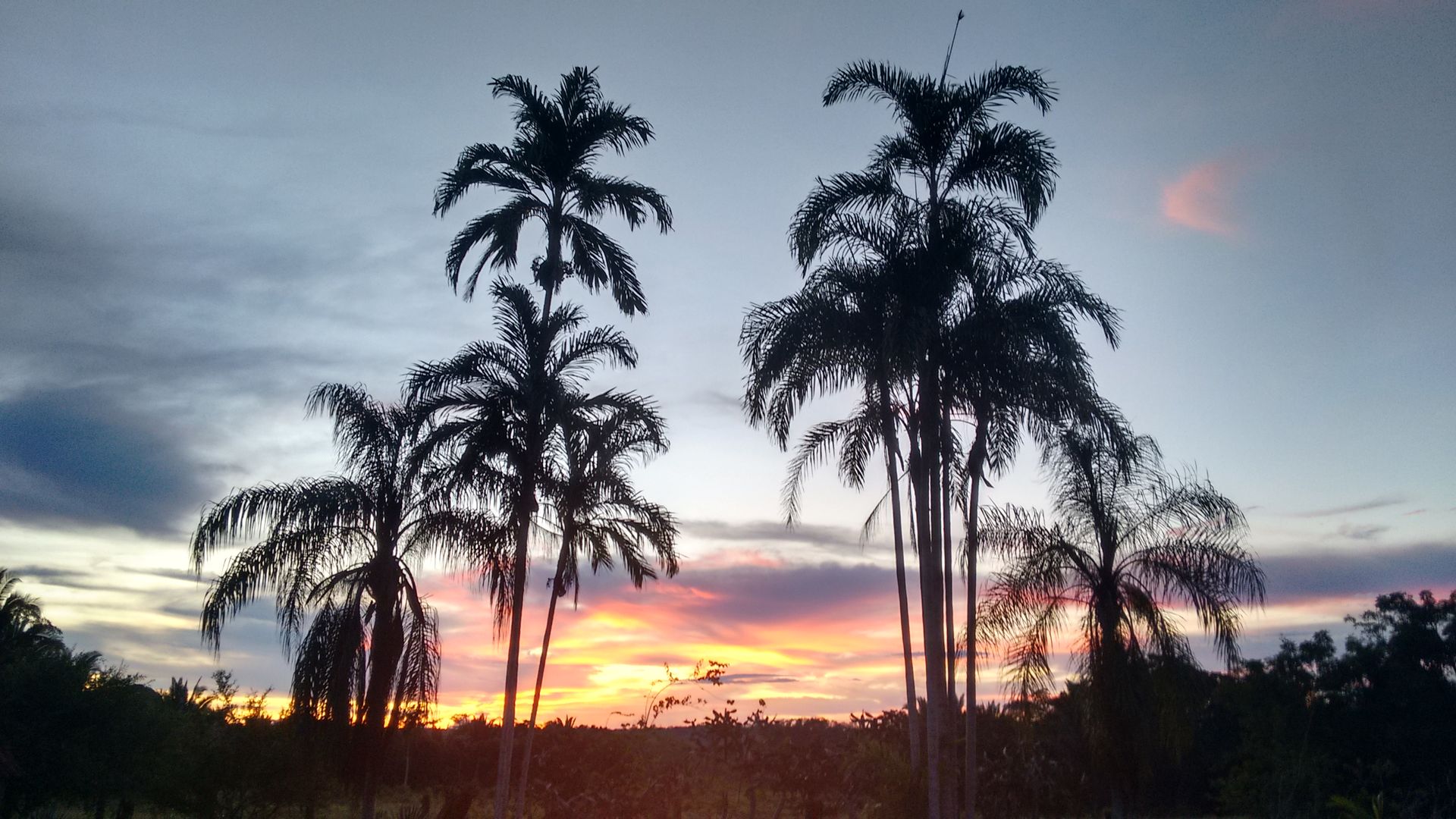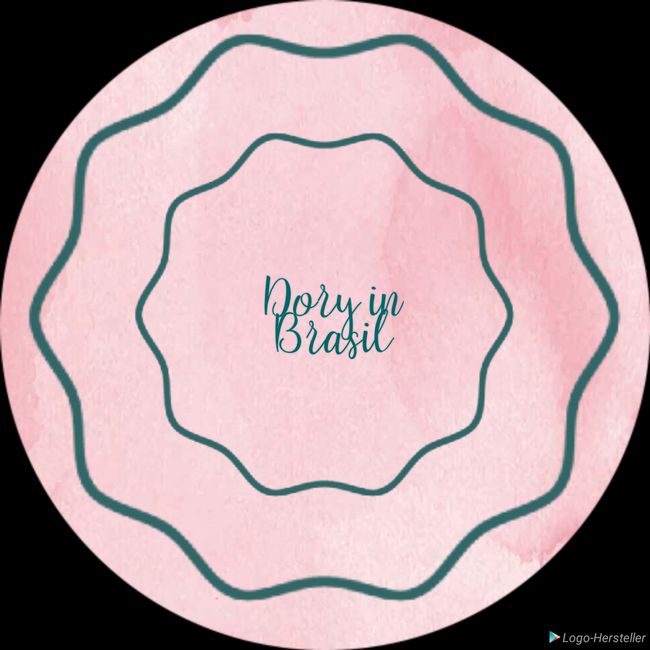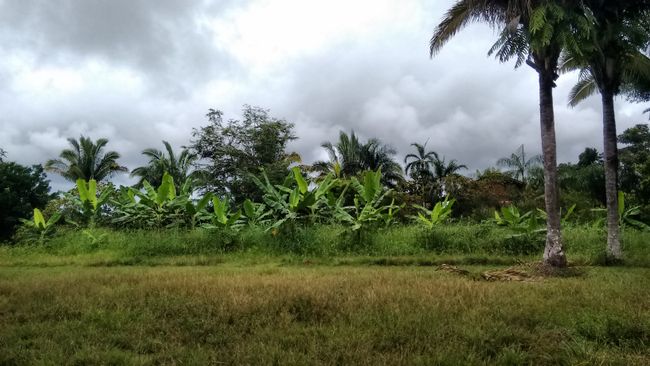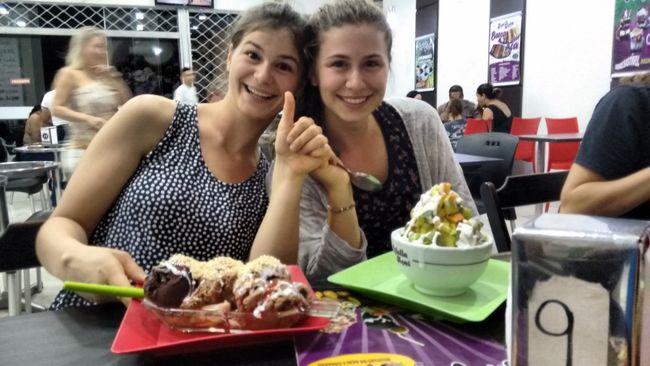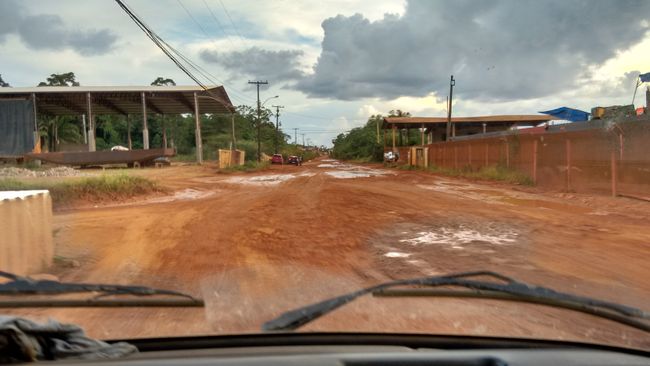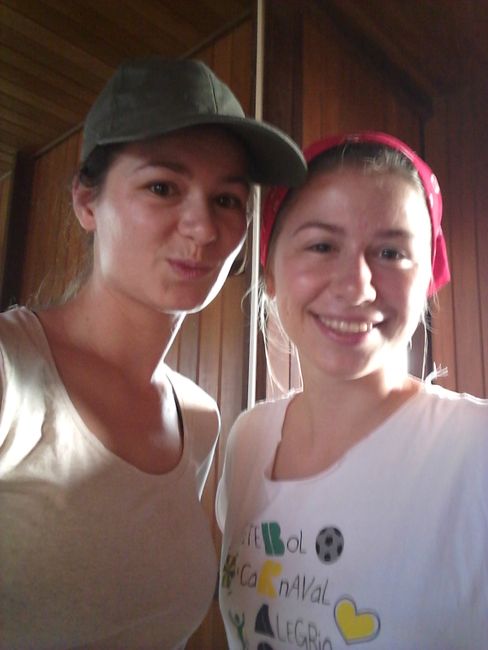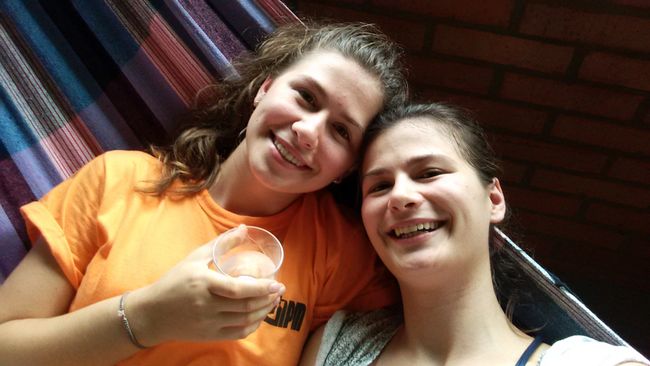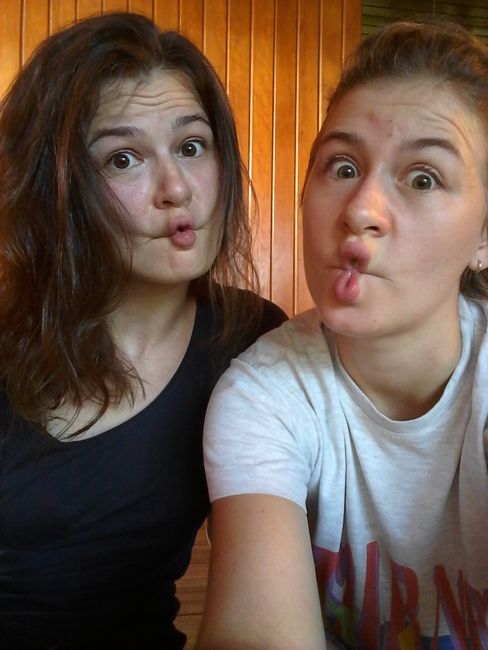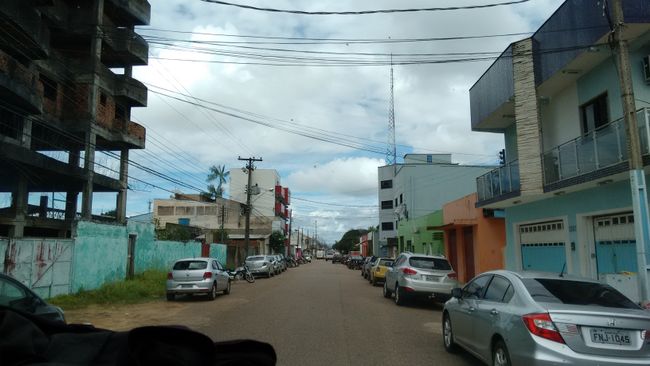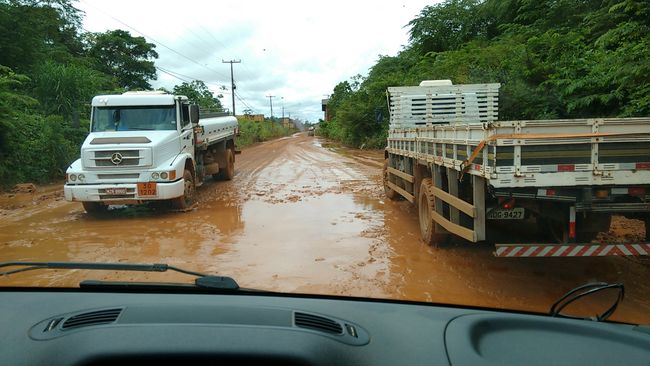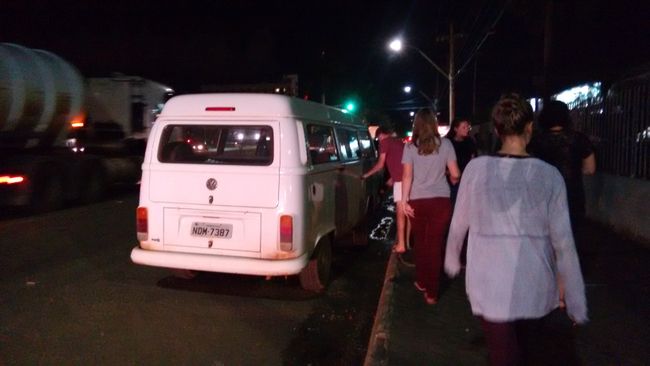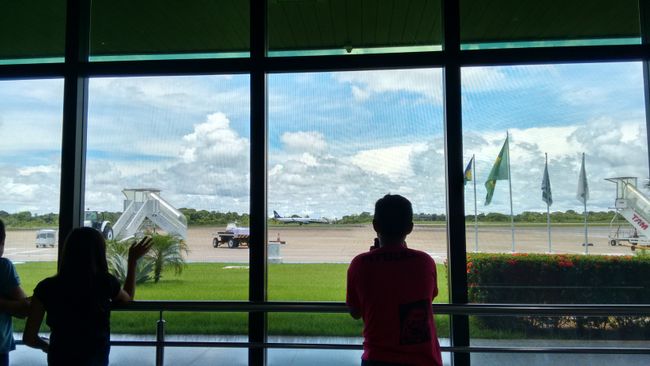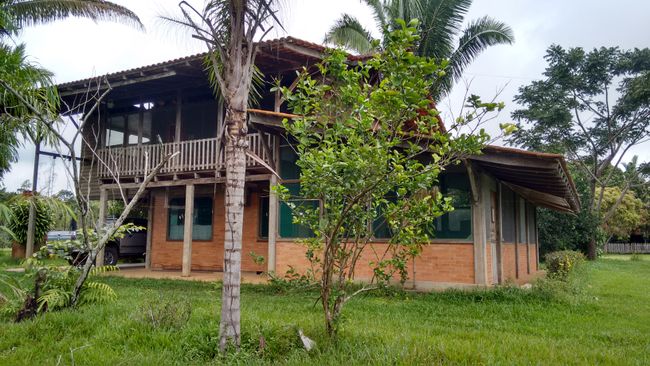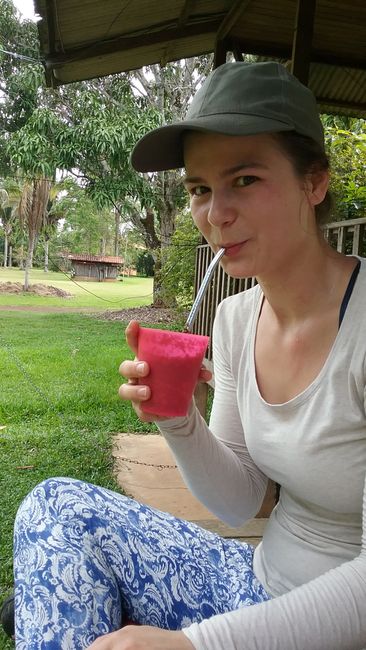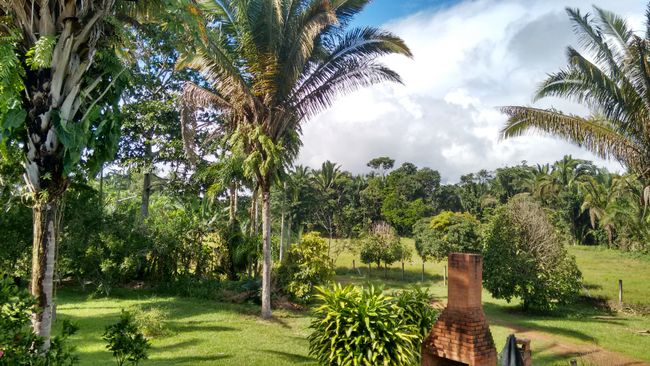P like Porto Velho, Q like Quero and R like Rainforest
شائع شدہ: 15.02.2018
خبری مکتوب کے لیے درخواست دیں
Porto Velho

On the night of February 12th to 13th, I flew from Sao Paulo via Manaus to Porto Velho, where my sister Ágnes is currently doing a voluntary service year at a mission organization called DIPM (Deutsche Indianer und Pionier Mission). In the pouring rain and after many turbulence, I arrived in Porto Velho at 3:05 am, received an umbrella to get from the airplane to the airport building as dry as possible, and was expected there by Ágnes and two of her colleagues. Unfortunately, I had a nasty surprise at the baggage claim when my backpack came towards me on the luggage belt with damaged and torn flight protection. But thank God, only part of the content was damaged and I was able to recover most of the things without really serious losses during a special backpack rescue operation the next day.

The drive to the mission was more than adventurous, as you drive for about 45 minutes on a road that is completely worn out and full of potholes and puddles/lakes due to the many freight transporters and the rain. Later, I took pictures and videos when we drove into the city during the day, and you can see how much you get shaken. The best trick is to sit like a sack of potatoes on the bench without fastening your seatbelt and just sway along. (By the way, fastening the seatbelt hurts much more than just sitting like that. And regarding speed, you can drive about 15-20 km/h on these roads, otherwise the axle breaks or the car gets stuck somewhere).

Quero
My Portuguese is improving day by day, as I somehow depend much more on it and communication with hands and feet is challenging and complicated.
At the mission site, there is one family with 8 children (currently only 5 of them live there), a married couple, and one single woman. These are the missionaries of DIPM here in Porto Velho. They are assisted by so-called Kurzi's (short-term workers), who are mostly young people who want to get a taste of missionary work after high school or between studies, training, or other activities. They live in brick-wood houses that have no glass windows, but everywhere fly screens through which you can hear the sounds of the jungle inside and around the site. In addition to many buildings that are needed for everyday life (e.g., utility buildings, tool sheds, cattle stalls, attic, ...), there is also a large hall for the Bible school and 10 mud-wood huts with adjoining sanitary facilities and kitchens for the Indians who live on the site during the Bible school period.


All possible trees with all kinds of fruits you can imagine grow on the site: banana plants, coconut palm trees, acai, acerola, cupuacu, pitanga, caju, carambola, tangerine, banana, mango, jackfruit, jambu, orange trees, and much more. You can see all sorts of spiders and beetles, other creepy crawlies, and often snakes as well. In the evening, small geckos sneak around on the fly screens and are chased away by jumping green little frogs. When I lie in bed in the evening and listen to my surroundings, I hear several beetles clattering and crickets. You can hear a strange beetle that sounds as if a neighbor is starting a chainsaw. In the morning, a bird screams as if a whistle is going crazy, and sometimes you can hear a bird howling like an alarm system. It's really an experience and fascinating to see how diverse and colorful nature has been created!

During my stay with the missionaries, I help out in everyday life, so I also got to clean the large hall (used for the Bible school), sort medications and check their expiration dates, distribute hay on large meadows, and help prepare Bible school materials. During the breaks, we drink Terrere (mate with cold water and lime), Succos (various fruit juices made directly from the corresponding fruits), or simply Aqua de Coco (coconut water, which is isotonic by the way). Unfortunately, I now have an allergic reaction to the strong sunlight, the dust, or the many foreign grass pollens and will be spending the next few days indoors.

You can see many Indians in Porto Velho, especially those who have left their large tribes and moved to the city. Starting tomorrow, the first Indians will arrive for this year's Bible school, and I am curious to see what encounters their arrival will bring. Many of them always come with their whole family, where the women are constantly pregnant and always have a baby with them. The missionary who is a nurse told me that if something happens, she will take me along.

Cooking together, eating acai, having many conversations, playing volleyball, going to Porto Velho, and much more determine everyday life here alongside work.
I am using the time to prepare for the summer camp for teenagers and read an English midwifery book that is specifically written for locals and midwives in the mission. I am amazed at how some topics can be presented in a simplified way without losing any details.
That's all for now from the Amazon :-)
خبری مکتوب کے لیے درخواست دیں
جواب دیں۔
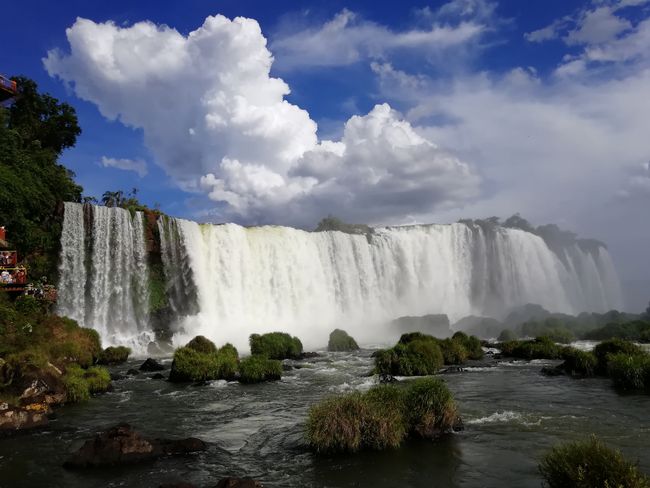
سفری رپورٹس برازیل
